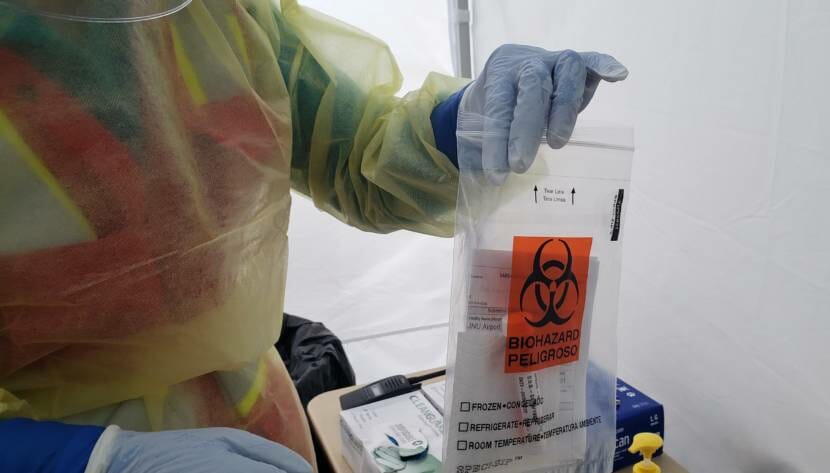
Juneau will have its own machine to process COVID-19 tests starting next month. That should lead to a faster turnaround time for results.
The Juneau Assembly approved $700,000 in CARES Act money for testing equipment in June. But with the machines in high demand all over the world, the city expected to have to wait until 2021.
Instead, Juneau’s order will arrive in December.
“Ideally, we will have the staff and supplies in order to process all of our tests that occur in Juneau on the system,” said Emergency Operations Center Planning Chief Robert Barr.
The city is getting a cobas 6800 system from Roche. It will be able to process nearly 400 tests every eight hours. That means people should receive same or next day results.
Juneau currently performs about 150 to 200 tests a day on average, according to Barr. Each test has to be flown to a laboratory for processing.
Turnaround time for results from the airport testing site improved recently when the city started sending tests to a private lab in California, instead of the state lab in Fairbanks. But most results still take two to three days.
“A test is a point in time, right? So the closer to that point in time that you can tell someone that they tested negative or they tested positive, the higher value that test has,” Barr said.
The city plans to start sending tests from the Capital City Fire/Rescue testing site to the out of state lab next week. Barr said the state pays for shipping and processing.
Right now, Bartlett Regional Hospital has rapid tests available for some people.
Barr said they’re building a space at Bartlett for the new machine. The hospital is also hiring staff to run it. But it may take some time to reach full capacity for all testing done in Juneau.
“There may at first be some supply constraints. It kind of depends on the worldwide demand on the testing supplies,” Barr said. “But we would hope to transition all of it over. The most important test that we would do early on on this machine would be tests for people experiencing symptoms.”
The machine is a polymerase chain reaction test, also known as PCR. It takes about four hours to process a sample.
Barr said that’s the same type of equipment used at both the state and California labs.
